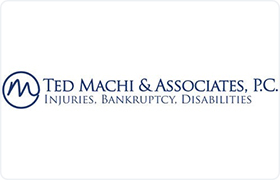S CORPORATION
A term that describes a profit-making corporation organized under state law whose shareholders have applied for and received subchapter S corporation status fro...
(more...)A term that describes a profit-making corporation organized under state law whose shareholders have applied for and received subchapter S corporation status from the Internal Revenue Service. Electing to do business as an S corporation lets shareholders enjoy limited liability status, as would be true of any corporation, but be taxed like a partnership or sole proprietor. That is, instead of being taxed as a separate entity (as would be the case with a regular or C corporation) an S corporation is a pass-through tax entity: income taxes are reported and paid by the shareholders, not the S corporation. To qualify as an S corporation a number of IRS rules must be met, such as a limit of 75 shareholders and citizenship requirements.
 x
x

 Ted Machi Arlington, TX
Ted Machi Arlington, TX Practice AreasExpertise
Practice AreasExpertise
